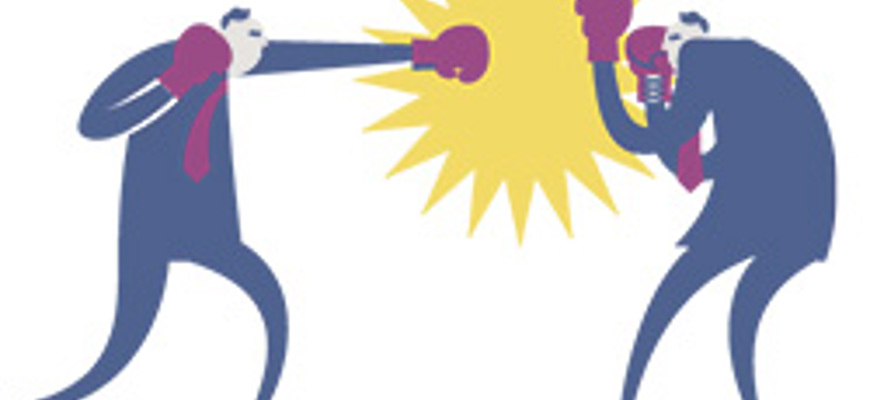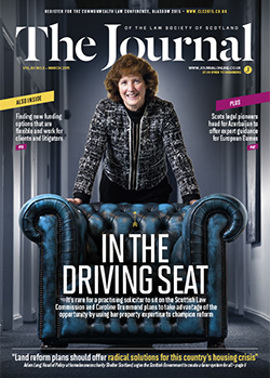Taking on the expert

Real expert witnesses such as doctors and forensic scientists are perhaps the most difficult for any cross-examiner. It’s not easy to deal with someone whose knowledge of the subject far exceeds the interrogator’s.
One answer is for counsel to immerse themselves in the perhaps narrow area of science covered by the evidence. I’ve heard it said that Donald Findlay QC has done this so often in firearms cases that he is now a match for any expert where evidence about guns is involved. But generally a few days of swotting can never compete with sometimes decades of study and research.
With these difficulties in mind, I’ve always been impressed by the cross-examination of a defence expert by Sir Norman Birkett QC, in the prosecution of Alfred Rouse for the murder of a hitchhiker in 1931. Rouse was believed to have been attempting to fake his own death by knocking the man out and setting his own car on fire with the unfortunate victim still inside. A brass nut and screw had allegedly been loosened to allow petrol to flow into the car so it could be set on fire more easily. The defence called an expert fire investigator who, it was claimed, had vast experience of car fires. He is reported to have given his evidence in chief with considerable confidence and apparent authority. He stated that the fire was accidental, in his opinion, and explained the loosened brass nut and screw as a consequence of the heat generated by the fire.
Birkett began his cross with the now famous question: “What is the coefficient of the expansion of brass?” The unsatisfactory response was “I beg your pardon?” The witness was never let off the hook, with the examination continuing as follows:
“Did you not catch the question?”
“I did not quite hear you.”
“What is the coefficient of the expansion of brass?”
“I am afraid I cannot answer that question off hand.”
“If you do not know, say so. What is the coefficient of the expansion of brass? What do I mean by the term?”
“You want to know what is the expansion of the metal under heat?”
“I asked you what is the coefficient of the expansion of brass? Do you know what it means?”
“Put it that way, probably I do not.”
As a young lawyer I often dreamt of commencing the cross of an expert with such a question. The chance almost came my way a few years ago, when I was instructed to defend the owners of a card club for organising allegedly illegal poker games. The issue for proof was whether or not poker was a game of chance as defined by the gaming legislation. As it happens, I was a regular in the poker haunts of Glasgow at the time, and in truth I had been fortunate not to be in the club when the police raided it in considerable numbers. The prosecution expert was a man who worked for the gaming board, and I understand he intended to say that any game with a random distribution of cards is a game of chance. This, if you know anything at all about poker, is a massive oversimplification of a truly fascinating and complicated game.
In any event, I knew that you are not allowed to gamble in a casino if you work for the gaming board. With that in mind, it was not in fact possible for the Crown’s supposed expert to be an expert on poker. I found myself actually salivating when I thought about the forthcoming cross. The planned first question was: “Can you explain the effect of reverse implied odds when you play no limit hold-em with deep stacks?” Sadly, the Crown capitulated before any evidence was led. I strongly suspect their expert took fright when he discovered that the defence counter to him was Scotland’s only sponsored professional player at the time. That and the stack of books on game theory piled up on the defence side of the table. It’s just my luck, though, that when I finally thought of a damaging first question for an expert witness, I didn’t get to ask it.
Starting from a low base
In practice I believe there are four main ways expert evidence can often be effectively challenged. None of these methods require particular expertise by the questioner.
(1) The level of expertise can be questioned.
(a) Sometimes the defence has a better qualified expert, and a cross which demonstrates this can leave the jury with no choice but to prefer the defence expert’s opinion. Indeed, I know of cases where a Crown expert has had to concede he was taught by his defence counterpart.
(b) It is also possible to limit the scope of a witness’s expertise. This can be particularly effective if the issue can be moved away from the witness’s particular field. In a recent trial I had to deal with a surgeon whose evidence in chief was that a stab wound to the complainer’s neck was most likely deliberate rather than accidental, because significant force would be required to break the skin. I had spent the weekend reading academic papers by pathologists and forensic scientists on the subject of the force required to break human skin with a knife. The general conclusion was that it all depended on the sharpness of the point of the knife. So in cross I asked our surgeon friend if he was “familiar with the extensive research in the fields of pathology and forensic medicine on this subject”. I knew he wasn’t when he was immediately evasive and responded: “I’m just judging it by the force required during operations when a scalpel is used to break the skin.”
I didn’t let him evade, and he conceded he was aware of but not particularly familiar with the research. I then put it to him that it was not of course his field. He conceded it wasn’t, and I asked if it would surprise him to discover that the research indicated that the necessary force depended on the sharpness of the point of the knife. He said that made sense and it wouldn’t surprise him. I then asked if he’d ever seen the knife which was a production in the case. I already knew he hadn’t, and he conceded this rather sheepishly. By the end he was conceding an accident was entirely possible. Moving him away from his field made my job much easier.
(2) Favourable information can be obtained from opposing experts. Often there are areas of agreement between experts, and this can be elicited to bolster a defence expert’s opinion or support a defence theory. Indeed it is often possible to have experts agree that an opposing theory is possible. It’s best, however, to deal with areas of agreement at the beginning before a cross-examination becomes confrontational.
(3) Alternative theories can be put by referring to established textbooks or periodicals on the subject. Two examples of this have already been given, in the poker club case and the cross-examination of the surgeon by referring to academic papers. It is in this area that the most preparation has to be done and the most care taken. It would be unwise to be carried away and forget who the expert is. But in an ideal world you would put an opposing theory to the witness based on real textbook science, and then call a defence expert to support it. By the end of the case the jury will have heard you put the alternative theory, hopefully, with conviction and apparent authority. They then hear a defence witness put forward the same theory. The repetition alone is no bad thing.
(4) The impartiality of the witness can be challenged. In criminal cases, many expert witnesses only ever give evidence for the Crown or the defence. The various experts currently employed by the Crown at the Crime Campus in Gartcosh are one example, and of course there are various companies who supply defence experts. How can you treat as impartial the opinions of a witness who only ever gives evidence for one side?
An everyday example in our criminal courts is the Statement of Opinion Unit officer in drugs cases. Often a charge of drug dealing is based solely on the amount of drugs recovered. The suspect is not observed dealing in drugs and no alleged customers come forward. But a jury is invited to convict because the STOP Unit officer says he must be a dealer because of the amount. I always find myself challenging the impartiality of these officers.
Generally I start by pointing out that the first person to accuse my client of drug dealing was a police officer working for Police Scotland. I then get the witness to confirm he also works for Police Scotland. Next I have him confirm he has never been a defence witness, and then I put it to him directly that his opinion is not impartial. It’s a biased opinion given in support of his colleagues. I return to the theme in my speech, and usually give the jury an example of a biased opinion we wouldn’t accept in ordinary life. Imagine in a football game between Rangers and Celtic one of the Celtic strikers falls down in the penalty area. You would never ask the Celtic manager to decide if it was a penalty because he was an expert in football. This approach has been very effective for me, and I think it is a mistake for the Crown only to rely on STOP Unit officers in these cases.
I hope these examples show that you don’t have to be the smartest person in the room to cross-examine experts effectively. There are relatively simple techniques that anyone can learn. Preparation is a good thing, but focused preparation is better.
In this issue
- Structured settlements: worth a look?
- Unfairness defined
- Our digital afterlife
- Powers of attorney: full instructions?
- Writings redefined
- Reading for pleasure
- Opinion: Adam Lang
- Book reviews
- Profile
- President's column
- Roll up to register
- People on the move
- Tax plan's on track
- Lease of life
- No win, no fee: no problem?
- Ready to go to court?
- Taking on the expert
- Pensions: keep up with the shake-up
- Equity investment and law firm funding
- Entitled to rely
- See-through setups
- Copyright: defining the boundaries
- Tenancies: the shape of things to come?
- A career taking off
- The system is sound, but...
- Law reform roundup
- Obituary: Leslie Cumming
- From the Brussels office
- From the Clyde to the Caspian
- Some common misconceptions
- Ask Ash
- Mediation: new options
- ABS: time to accept the evidence
- It is OK to change your mind
- Sizing up the class of 2018






